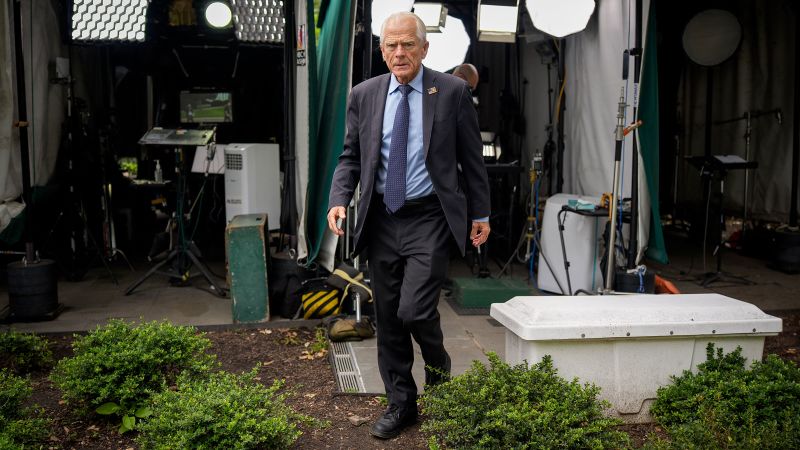In a notable development regarding legal proceedings, the United States Justice Department has decided to withdraw its lawsuit against Peter Navarro, who served as a trade adviser in the Trump administration. This case, which has garnered significant attention, involved allegations against Navarro for utilizing an unofficial email account to facilitate government correspondence and improperly retaining presidential records during his tenure from January 2017 to January 2021. The decision to drop the lawsuit was reflected in a court filing on Tuesday.
The joint notification for the dismissal of the case was submitted by the Justice Department alongside an attorney representing Navarro. However, the details within this filing did not clarify the rationale behind the withdrawal of the lawsuit, which initially originated in 2022, well into President Joe Biden’s administration. The filing comprised a single page that indicated both parties would bear their own legal expenses, a common practice in civil litigation when cases are dismissed.
At the heart of the lawsuit were accusations that Navarro had utilized, at minimum, one “non-official” email account—specifically a ProtonMail account—for conducting official government communications. The timing of the legal action became particularly critical following Navarro’s indictment on separate criminal charges, which resulted from his refusal to cooperate with a congressional inquiry focusing on the events surrounding the January 6, 2021 insurrection at the U.S. Capitol. This refusal led to Navarro’s eventual conviction on misdemeanor charges, culminating in a brief four-month prison sentence.
In addition to the allegations of email misuse, the civil lawsuit claimed that Navarro’s actions resulted in his failure to properly submit presidential records to the National Archives and Records Administration (NARA), a vital agency tasked with preserving important governmental documents and records. The potential implications of such failures raise questions about transparency and accountability in government practices, particularly pertaining to official communications.
Interestingly, the Justice Department informed the court of their decision to drop the lawsuit just one day before U.S. Magistrate Judge G. Michael Harvey was slated to oversee a status conference related to the case. Such actions can often indicate a strategic legal maneuver, although the specifics behind this timing remain unclear.
As of now, neither the Justice Department nor Navarro’s attorney has provided public commentary on the dismissal, leaving observers and analysts to speculate about the motivations behind this abrupt withdrawal. The silence from both sides of the legal battle underscores the complexities at play and leaves many questions unanswered regarding the conduct of officials during the Trump administration and the subsequent responses from the Biden administration.
Peter Navarro, throughout his career, has maintained a reputation as a staunch critic of trade policies, particularly concerning relationships with China. His role during President Trump’s first term was marked by significant advocacy for trade reforms, and despite the controversies surrounding his legal standings, he was named the senior counselor for trade and manufacturing for Trump’s anticipated second term, should Trump secure a return to the presidency.
In summary, while the dismissal of the lawsuit against Navarro eliminates one aspect of the ongoing scrutiny of the Trump administration and its practices, it undoubtedly adds another layer of intrigue to Navarro’s already tumultuous legal journey and conceptualizes broader discussions regarding the ethical use of communications in government. As the political landscape evolves, the implications of this case and similar ones will likely continue to shape the public’s understanding of government accountability and legal responsibilities.



